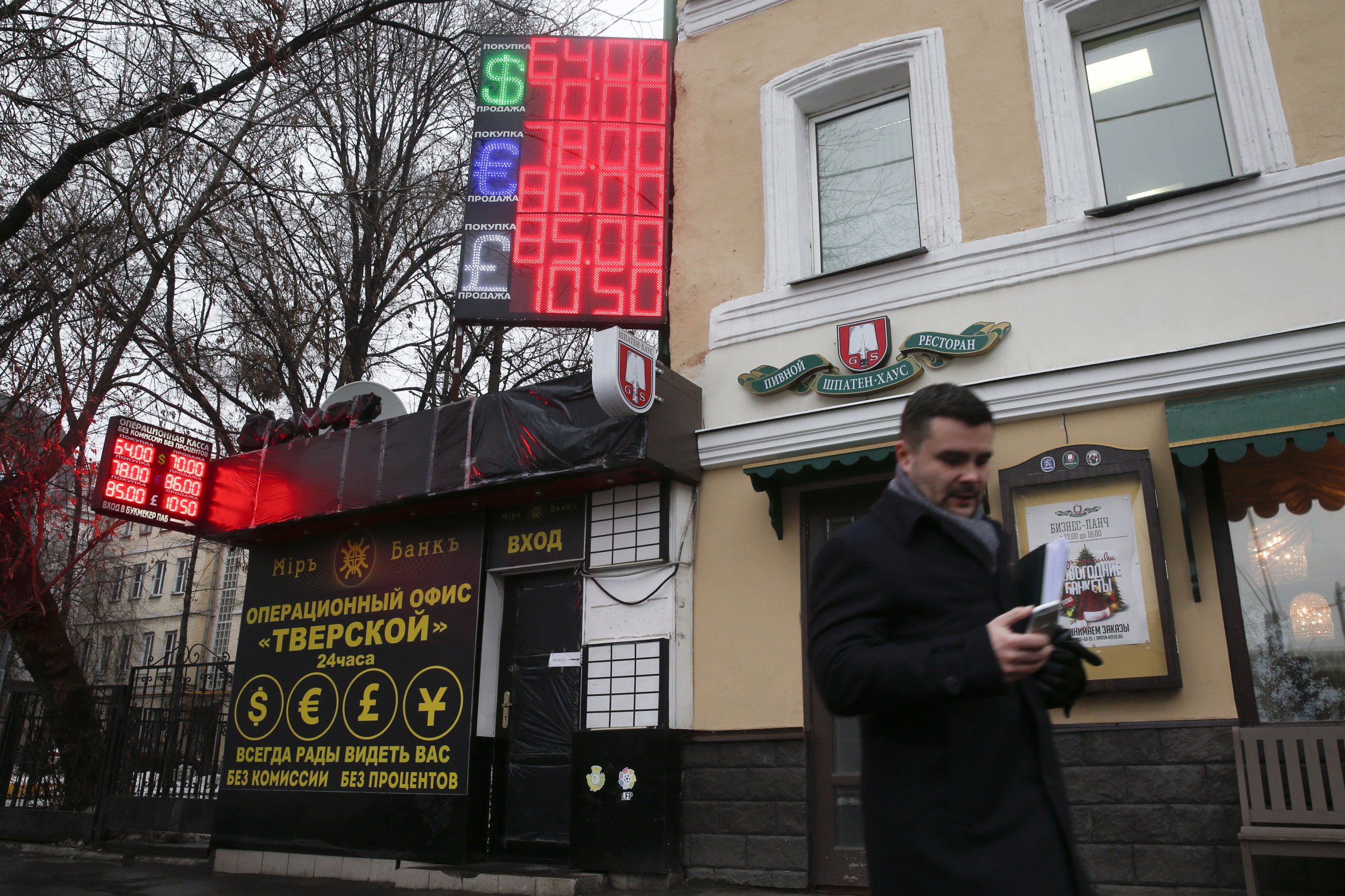
An announcement by the Russian Central Bank late last night saying that it would hike up its interest rate from 10.5% to 17% appears to have exacerbated the problem it is trying to remedy as the Russian rouble continues to plunge to an all-time low against the dollar.
The surprise move, the sixth interest rate rise this year and the largest single increase since 1998, evidently hasn't convinced investors that it will be enough to relieve pressure on the Russian currency from falling oil prices and Western sanctions, as the rouble reached a record low of 78 against the dollar and 118 against the pound early Tuesday afternoon.
"In a situation like this, an emerging market central bank has to 'break the back' of the market, by selling dollars on top of it," said Luis Costa, an emerging market analyst at Citigroup, in an internal note seen by the Wall Street Journal. "The central bank again shied away from aggressively selling dollars in a crucial moment to reaffirm its monetary and FX policies. This is essentially why the hikes did not work." Russia has already spent $80 billion in foreign-exchange reserves propping up the rouble.
However, according to the chairwoman of the Russian Central Bank, Elvira Nabiullina, the latest rise in rates were designed to curb inflation rather than to steady the currency, and this would take time to take effect as the market stabilized. Blaming low oil prices and Western sanctions for the rouble's weakness, she told state television on Tuesday: "We think the rouble is undervalued by all parameters - the condition of the economy and the balance of payments. But it will take time for it to come back toward the fundamental rate."
The Russian currency has now fallen by nearly 50% against the dollar since January, making it one of the world's worst-performing currencies this year, below even the Ukrainian hryvna, which has weakened 47.9% n 2014.
Last week Russia increased rates to 10.5% from 9.5%, but the move did little to boost the rouble.
Raising interests rates carries its own risks, as more expensive borrowing can hinder economic growth. "This move symbolizes the surrender of economic growth for the sake of preserving the financial system," Ian Hague, founding partner at New York-based Firebird Management LLC, which manages about $1.1 billion in funds dedicated to equity investment in emerging markets, including Russian stocks, told Bloomberg. "It's the right move to make, and it wasn't easy to make it," he continued.
However, some argued that the move by the central bank could help to curb the currency's decline. "The central bank is trying to stop the avalanche, and such a massive hike may be sufficient," Slava Breusov, an analyst at the New-York based investment management company Alliance Bernstein told Bloomberg. "No one seems to be thinking what it will do to the economy, as the priority is to stop the rouble plunge."
But while the market shows little sign of responding as the rouble continues to plunge, this latest attempt to prop it up could mean the worst of both worlds for the Russian economy.
Uncommon Knowledge
Newsweek is committed to challenging conventional wisdom and finding connections in the search for common ground.
Newsweek is committed to challenging conventional wisdom and finding connections in the search for common ground.





